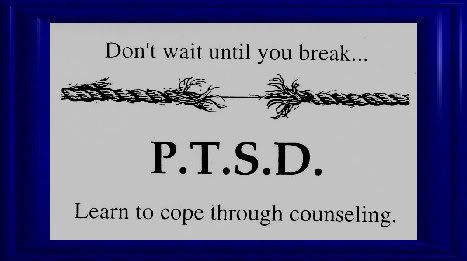In researching the Journal of Counseling & Development, PTSD is considered one of the "signature injuries" of combat soldiers returning from Iraq and Afghanistan. This disorder can greatly affect the functioning of soldiers, yet the disorder often goes undetected or is misdiagnosed by both military and civilian health care providers. Not every soldier returns to the United States with PTSD or difficulty with anger or aggressiveness, but for the small part that do return with difficulty, the help is truly needed.
PTSD symptoms such as flashbacks, avoiding reminders of something that really bad happened, were not consistently connected to aggressiveness but a great concern. Instead, we find that post-deployment anger and hostility are associated with PTSD hyper-arousal symptoms:
- Having a difficult time falling or staying asleep.
- Feeling more irritable or having outbursts of anger.
- Having difficulty concentrating.
- Feeling constantly "on guard" or like danger is lurking around every corner.
- Being "jumpy" or easily startled.
Chart. (2012, Summer). Journal of Counseling & Development. Vol. 88 Issue 3, p372-376, 5p, 1 Chart. Retrieved November 14, 2010 from the ERIC database.
Buggey, T. (2007, Summer). Storyboard for Ivan's morning routine. Diagram. Journal of Positive Behavior Interventions, 9(3), 151. Retrieved December 14, 2007, from Academic Search Premier database.

No comments:
Post a Comment